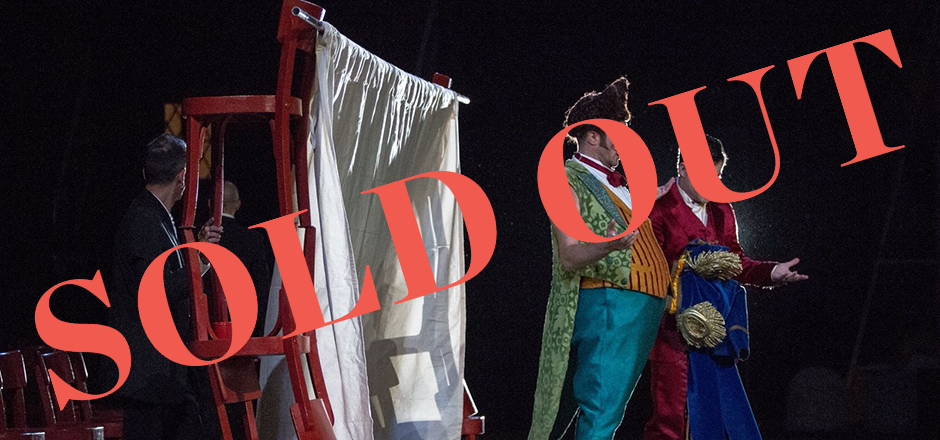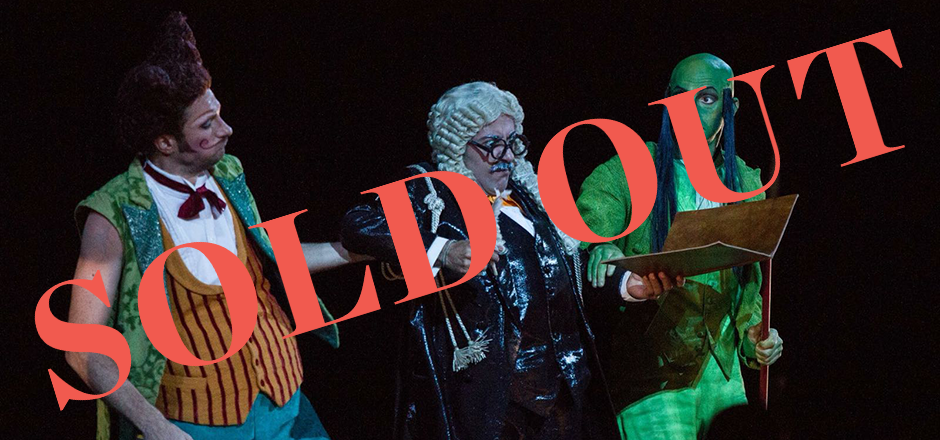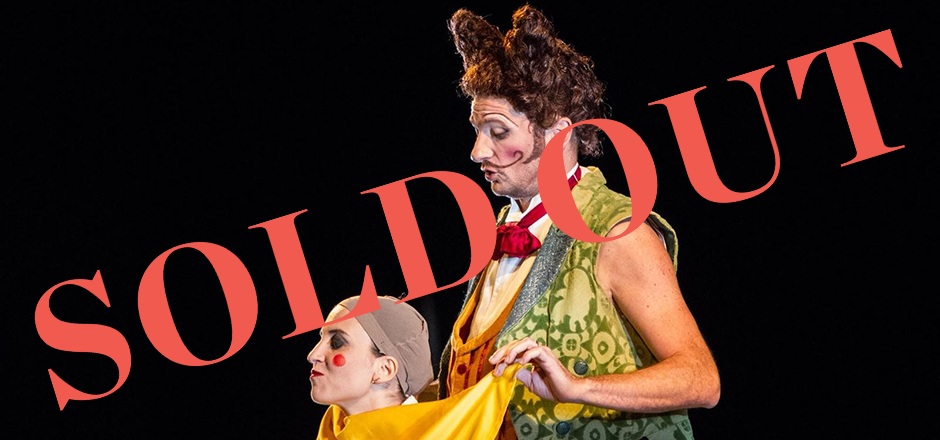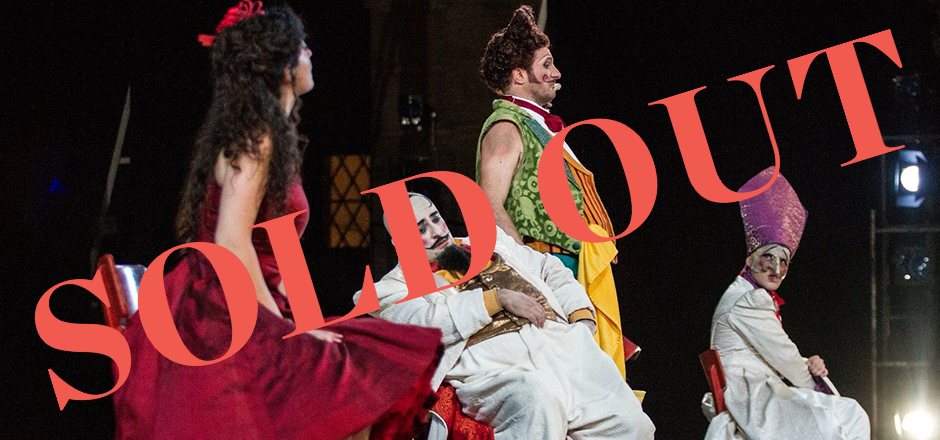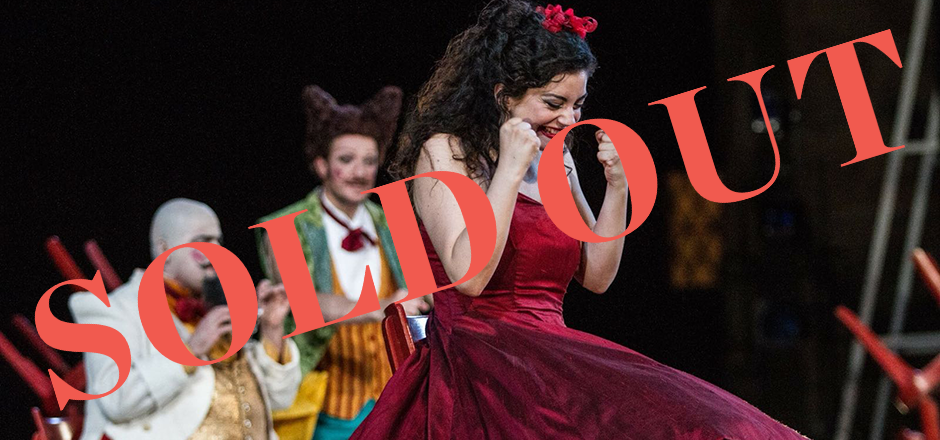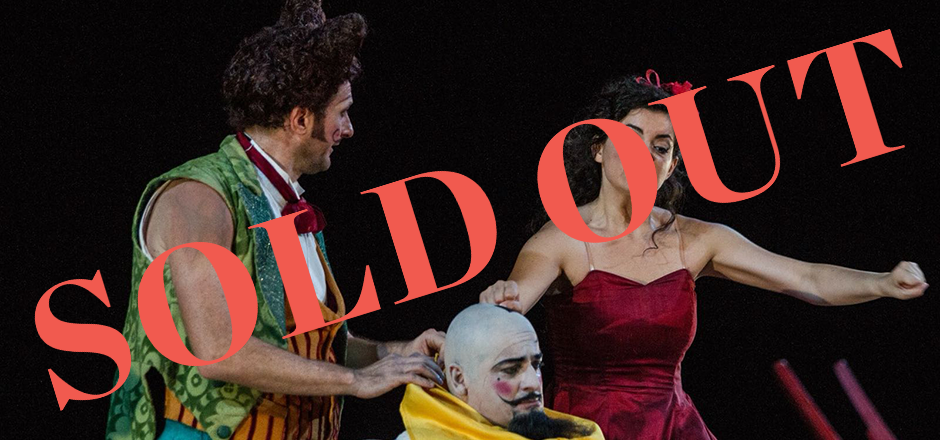Lyric Season 2017/18
Opera Repertoire
The barber of Seville
Gioachino Rossini
Il barbiere di Siviglia, or sia L'inutil precauzione
A humourous melodrama in two acts based on the comedy of the same name by Pierre-Augustin Caron de Beumarchais
Libretto by Cesare Sterbini
Music by Gioachino Rossini
First performed: 20 February 1816 at the Teatro Argentina, Rome
Staged by the Maggio Musicale Fiorentino / Maggioformazione - 2005
Artists
Conductor
Giuseppe Grazioli
Director and scenic staging
Damiano Michieletto
Costumes
Carla Teti
Light design
Alessandro Tutini
Assistant director
Tecla Gucci
Choir director
Lorenzo Fratini
Orchestra and Choir of the Maggio Musicale Fiorentino
Giuseppe Grazioli
Director and scenic staging
Damiano Michieletto
Costumes
Carla Teti
Light design
Alessandro Tutini
Assistant director
Tecla Gucci
Choir director
Lorenzo Fratini
Orchestra and Choir of the Maggio Musicale Fiorentino
Rosina
Paola Gardina
Figaro
Giorgio Caoduro
Don Bartolo
Omar Montanari
Count Almaviva
Levy Sekgapane
Don Basilio
Luca Dall’Amico
Fiorello
Jungmin Kim
Berta
Eleonora Bellocci
An officer
Vito Luciano Roberti
Performers
Silvia Benvenuto, Enrica Gualtieri, Paolo Arcangeli, Mauro Barbiero, Fabrizio Casagrande, Alessandro Ciardini, Cristiano Colangelo and Pierangelo Preziosa
Paola Gardina
Figaro
Giorgio Caoduro
Don Bartolo
Omar Montanari
Count Almaviva
Levy Sekgapane
Don Basilio
Luca Dall’Amico
Fiorello
Jungmin Kim
Berta
Eleonora Bellocci
An officer
Vito Luciano Roberti
Performers
Silvia Benvenuto, Enrica Gualtieri, Paolo Arcangeli, Mauro Barbiero, Fabrizio Casagrande, Alessandro Ciardini, Cristiano Colangelo and Pierangelo Preziosa
It is almost dawn when, in a square in Seville, the Count of Almaviva, with the help of his manservant Fiorello and a few musicians, sings a serenade under the window of his beloved Rosina. Not receiving any response from the young woman, he asks the barber Figaro for advice; the latter reveals that Don Bartolo, the tutor of the girl, keeps her locked away with the intention of marrying her. When Rosina finally looks out from her balcony, she lets a note fall, which asks the name of her admirer. In order to be sure of the true feelings of the young woman, the Count claims to be of humble origins and that his name is Lindoro. The action then moves to the interior of Don Bartolo’s home, where Rosina gives Figaro a letter for Lindoro. Don Basilio, the music teacher of the young woman, warns the tutor of the arrival of the Count to the city, and advises him to invent a slanderous story in order to present him in a bad light to Rosina. The arrival of Almaviva, disguised on the advice of the barber as a drunken soldier, creates so much disturbance as to force the police to arrive on the scene.
ACT II
The Count, this time pretending to be Don Basilio’s substitute, manages once more to enter the apartments of Don Bartolo while Figaro, there for a shave, obtains the key to the terrace. When the real music teacher arrives, the situation deteriorates: Don Basilio is silenced in exchange for a sack of gold, and the tutor, understanding that he has been fooled, sends the presumed Linodoro away. In order to have his rival arrested and marry Rosina, Don Bartolo leaves the house and invites Don Basilio to look for a notary. The Count, who in the meantime has once again entered the building, reveals his true identity to the young woman, and marries her, taking advantage of the arrival of the notary. The tutor has no choice but to accept the marriage, happy that he does not have to provide a dowry for Rosina.
Born in Pesaro on 29 February 1792, son of a trombone player and a singer. He began studying the harpsichord and singing at Lugo, to then enrol in 1806 for cello, piano and composition lessons at the Musical Secondary School in Bologna. He made his debut in 1810 with La cambiale di matrimonio at the Teatro San Moisè in Venice, but his first important successes came with La pietra del paragone (1812) andTancredi e L’Italiana in Algeri(1813). Employed by the impresario Domenico Barbaja as director of the Neapolitan Theatres of San Carlo and the Fondo, with the obligation of writing two operas per year, he composed Otello (1816), Mosè in Egitto (1818), Ermione (1819) and Maometto II (1820). In Rome, between 1816 and 1817, Il Barbiere di Siviglia and La Cenerentola were staged; 1817 also saw the staging of La Gazza Ladra at the Scala in Milan. With Guillaume Tell (1829) he moved away from operatic theatre and dedicated himself to the Stabat Mater (1841) and the Petite Messe Solennelle (1863). He died in Passy, near Paris, on 13 November 1868.
